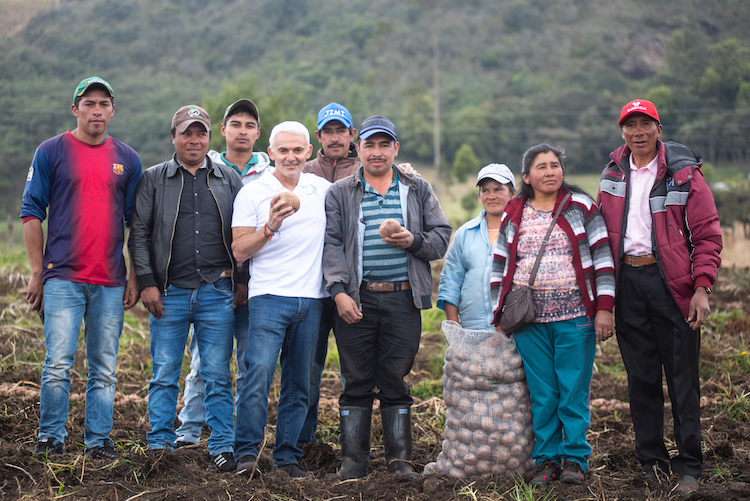
Frank Giustra meets with Acceso Colombia potato farmers in Boyacá, Colombia.
Note: The following interview was originally published on NextBillion.net, which is managed by WDI.
Several months before the COVID-19 crisis began, I reached out to the communications professionals at the Clinton Giustra Enterprise Partnership (CGEP). I had hoped to talk to them about the organization’s spin-off from the Clinton Foundation into what they were now calling Acceso, a new entity focused on building businesses and connecting them to the broader marketplace, particularly in Latin America.
I was pleasantly surprised to be put in contact with Frank Giustra himself, the Canadian businessman and philanthropist who created CGEP through a $100 million donation to the Clinton Foundation. Giustra is a mining financier who also founded Lionsgate Entertainment before turning his attention to philanthropy. (See previous articles about CGEP’s work here and here).
Since that time, the COVID-19 pandemic has put a lot of work on hold. But thanks to the assistance of Acceso’s communications team and to Giustra himself, our interview remained on track. In the following Q&A, he explains Acceso’s new direction as an independent entity, how it is investing directly in small businesses, and several things he’s learned as one of the early financiers in socially focused enterprise development.
Sidenote: Giustra’s connections with the Clinton family have led to some critical press coverage over the years. Whether readers see those topics as legitimate controversies or conspiracy theories, they are not what this interview is about. And as a nonprofit media site that endeavors to avoid politics, we won’t linger on those issues. Still, there are many valid critiques of the role of billionaires in philanthropy and impact investment. To his credit, Giustra fielded my question on the topic.
(Full disclosure: NextBillion’s parent organization, the William Davidson Institute at the University of Michigan, has worked with CGEP in the past. You can read more about that project here.)
Scott Anderson: We began this discussion several weeks before the COVID-19 crisis started. It seems appropriate to first talk about what impact it is having on the work of Acceso and its businesses. How are they adapting?
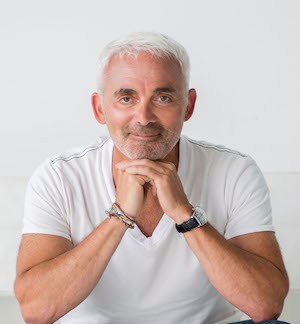
Frank Giustra
Frank Giustra: Our businesses are a critical source of food for local communities in the countries where we work – in addition to a continual source of income for thousands of farmers. Our businesses have been able to stay open, as we are essential supply chains. Thankfully revenues have not dropped drastically yet, as our supermarket and retail clients have maintained demand; however, there has definitely been a drop in demand from restaurant chains, and we are in the process of assessing how that will impact 2020 results – and any additional funding support we may need.
Where our products are part of broader social or nutrition-based projects (like in Haiti where we supply organizations like Partners in Health and schools, and in Colombia and Venezuela where we supply food kitchens run by ABACO Colombia, World Central Kitchen and Wayuu Taya Foundation with fresh produce to feed Venezuelan refugees) we are doing our best to maintain our deliveries, if not increase them. I’m proud of our team for stepping up to the challenge and working so hard during this difficult time – and our priority is keeping our teams, farmers and supply chains safe.
SA: My impression is that Acceso was structured very differently than many other foundations, particularly for the time when you began building businesses about seven years ago. For one, investments were made directly in agribusinesses that work closely with smallholder farmers and fishers. Can you explain the motivation for establishing the organization in this way?
FG: My mission has always been to find sustainable ways to alleviate poverty. We approached poverty alleviation in two distinct phases during our 12-year history [at CGEP]. During the early years of the organization (2007-2012), we supported multiple health and economic development projects through grant funding and project management. These projects included cataract surgeries, maternal and child nutrition, and farmer training to name a few. We determined that while these projects certainly had impact in their communities, they were not very sustainable because they relied heavily on grant funding; and they were not scalable or replicable as they were fairly unique and targeted to specific communities.
Based on a strategic review of Acceso’s early projects, I felt that we were not doing enough. I really wanted us to have a game changer, something more sustainable and impactful. Beginning in 2012-2013, we decided to test a social business model with the goal of building, investing start-up capital into, and scaling businesses that were replicable. I was prepared to take the early-stage risk and put in the start-up capital to do this. The intention behind building for-profit social businesses is that the profits are meant to be reinvested into the business. Without profits, our work will not be sustainable. Also, until we landed on our current model, I never felt our impact could be substantial enough.
We also decided to build the capacity and expertise of building businesses in-house, so that we could develop a rigorous process, learn from our experience and adapt it to new geographies to become more efficient and successful at replicating. Many impact investors are looking for profitable or close to profitable businesses, but we were prepared to actually build from scratch. Fortunately, looking back on that decision, it seems to have played out well. It hasn’t been easy and there have been a lot of challenges. But in seeing our businesses in El Salvador, Haiti and Colombia firsthand during a trip I made at the beginning of March, I am very impressed with the work our teams have done, and I’m convinced we have a successful model that can be replicated in other countries, either by us or by other organizations.
SA: Acceso seemed to take more of a systems approach in the realm of agribusiness, connecting smaller players to the larger supply chain and distribution channels. In the first few years, what sorts of metrics did you examine to see if you were on the right track?
FG: I’m glad you raise this question, because a systems approach and establishing businesses tailored to market needs are core to our model. We effectively reverse engineer from demand to build our businesses: First, we understand market needs and challenges, and then we assess how we can bridge the gap between the market (large retailers, supermarkets, restaurants and other buyers) and small producers. There are both financial and social metrics that have been key to assessing our impact. On the social impact side, we focused on increasing farmer incomes and creating jobs:
On the financial or commercial side, we look at key metrics like sales and profit with the goal of reaching profitability within five years. Our approach is always market driven. In our early years, we really focused on making sure we had the right product mix and the right clients so that we could grow and scale into local channels/markets. Larger clients typically have higher quality standards, but we knew that they were key to growth, so we monitored farmer production very closely and implemented necessary practices like Good Agricultural Practices training to make sure they were where we needed them to be.
SA: Are there a few success stories that come to mind?
FG: One of our main success stories is our partnership with Super Selectos, El Salvador’s largest supermarket chain, which has more than 100 local stores. With the intention to support economic development in local communities, by partnering with Acceso they were able to increase their local sourcing from less than 10% to more than 50% within a few years. Acceso also grew from becoming a small supplier to their largest supplier by sales and volumes. Both organizations consider this a win-win, as our partnership has created opportunities for local farming communities while also boosting the local economy. We’ve also spoken to multiple farmers who have either moved back from the U.S. or decided not to move to the U.S., as they realized how profitable farming could be. I think it’s incredible that we can help reverse the flow of migration.
SA: There must have been at least some failures. Can you cite a couple and discuss what you learned from them?
FG: I am glad that we had the chance to test different models in different geographies over the past several years. While we’re currently focused on building and managing agribusinesses in Latin America and the Caribbean, we also piloted and built several agribusinesses in Africa and Asia, as well as tested and built inclusive distribution businesses in several countries, and a vocational training business in Colombia. Some of these businesses were more successful than others, and we ultimately decided to focus on the agribusiness model as we had achieved strong proof of concept within a reasonable timeframe, while transferring other successful pilots or businesses to partners.
In our early years of building businesses, we ended up closing one of our agribusinesses because it was a new product which involved a fair amount of uncontrollable risk related to weather and potential crop spoilage. This was a joint decision between us and our buyer/partner. The main lesson we learned is that building successful, profitable businesses is not easy; it takes time and hard work, and even more so when working with low-income populations. Patient capital and the right partners who genuinely care about social impact (beyond public relations), who have “skin in the game,” and who understand the risks of working with small producers and entrepreneurs are supremely important. We also learned from past projects that if we did not assess demand or the market first, all of our work and funding on the supply/farmer side (training, etc.) may not result in high social impact or sustainability.
SA: Philanthropy is facing a good deal of skepticism these days from many sources. There’s been growing concern that philanthropic organizations that are established by billionaires, no matter how well-intentioned, are mainly a salve to social/environmental ills, and that policy makers really should focus on increasing marginal tax rates on high net-worth individuals to pay for more social programs. What is your response to that?
FG: I am not a billionaire and never will be, as I give my money away too fast to ever become one. I personally don’t believe there should be billionaires, period. I would also like to direct readers to a recent article I wrote entitled “Who Wants to be a Billionaire? I Don’t”.
SA: Impact investing has come a long way in the last 13 years. We’ve definitely been witness to a mainstreaming of ESG as well. What do you consider the greatest mark(s) of progress – and what is concerning you on the horizon?
FG: I’ve seen a real change in the world of philanthropy over the last 10-15 years. Donors want to see a return on their giving. They want to see that projects can be sustainable, as opposed to being funded continuously year after year. It’s therefore not surprising to me (and personally encouraging) that impact investing is becoming more mainstream, driven by increased social consciousness. In the last few years, we’re also seeing more and more international non-profits getting into impact investing, which is a sign that organizations are thinking about the sustainability of their work relative to traditional philanthropic models.
One mark of progress we’ve seen is a subset of impact investors who are truly “social first.” This includes some of our partners, such as Acumen in Colombia and Global Partnerships in El Salvador. We’re also seeing collaboration between grant funders and impact investors, particularly in the early stages of a social business – which is critical to de-risk investments, paving the way for later-stage investors. Finally, we have been encouraged by innovative funding models such as Kiva’s crowdfunding program for social enterprises, which our business in El Salvador has benefitted from.
Related to that, an ongoing area of concern is that the funding needs of the “missing middle” (social businesses with funding needs roughly between $100,000 to $2 million) are still largely unmet, particularly in the smallholder agriculture space. Traditional fund structures, including those of some impact investors, are not set up to efficiently deploy capital at those lower ticket sizes, meaning that it is still inherently difficult for many impact investors to be truly social-first. Some investors still believe it’s fairly easy to be profitable early on while solving major issues, and the truth is that businesses working with very poor populations have a whole set of challenges that investors have to understand and factor into their risk tolerance.
SA: Finally, CGEP recently spun off from the Clinton Foundation and established itself as Acceso. Can you explain why this is happening now – and how will Acceso operate with this new structure?
FG: Last year, I made the announcement that I was stepping down from my business interests and would focus the majority of my time on my philanthropy. I love my philanthropic work with all my heart. I consider Acceso my life’s work. I enjoy being hands-on and I get real satisfaction spending time with our beneficiaries. This was the highlight of my trip to our businesses in March: hearing the stories of farmers and employees, and figuring out what opportunities we still have to grow.
In relation to spinning off from the Clinton Foundation, this is an exciting next step and a natural evolution for us. As a builder of social businesses, I believe Acceso’s operating model is suited for an independent organization. I am grateful to the Clinton Foundation for their partnership, and I’m also excited about this new phase as I take on full management of our work. I know our team is excited about this new phase as Acceso as well. Our focus remains building, managing and scaling agribusinesses in Latin America and the Caribbean to sustainably lift farmers and fishers out of poverty, and identifying opportunities for future replication. The day-to-day operations of our local Acceso businesses remain the same, and we are looking forward to expanding our work alongside current partners – as well as increasing our investor base as we have done in the last one to two years. I truly believe we are a leading showcase and success story for social businesses in the agriculture space.
Photos courtesy of Paramo Films / Acceso.
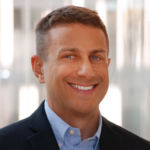
Scott Anderson is communications manager at the William Davidson Institute.
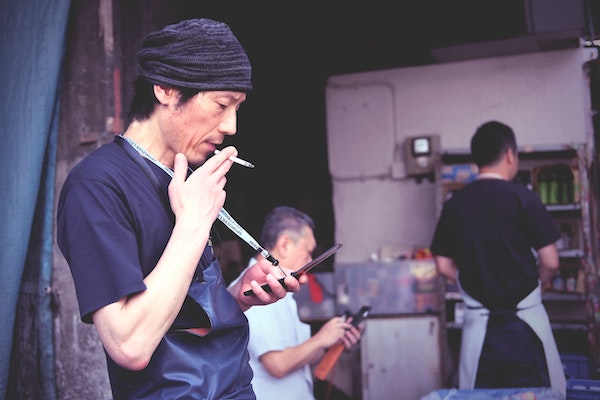
Photo by Erica Leong on Unsplash
Government health ministries in low- and middle-income countries (LMICs) have historically struggled to adequately fund healthcare services for their citizens. But as these countries transition away from donor funding over the next two decades, many will need to find new domestic revenue streams to finance these services. A new WDI white paper explores the impact of raising additional government revenue through increased tax rates on “bads,” such as tobacco, alcohol and sugary drinks.
The paper, “Revenue Estimates from Taxing ‘Bads’ in 16 Low- and Middle-Income Countries,” estimates the additional revenue generated in 2016 had higher excise tax rates been imposed on tobacco, alcohol and sugary drinks and then compares this revenue to select national economic indicators. The analysis included 16 low- and middle-income countries: Côte d’Ivoire, Democratic Republic of the Congo, Ethiopia, Haiti, India, Lao People’s Democratic Republic, Moldova, Myanmar, Niger, Papua New Guinea, Rwanda, Senegal, Sierra Leone, Tajikistan, Tanzania and Togo.
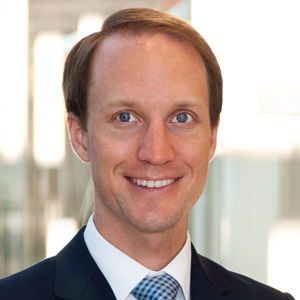
Ben Davis
“The key finding is that increased excise tax rates that result in only a modest increase in retail price can still generate an important amount of additional revenue relative to current health expenditure,” said Ben Davis, a research manager with WDI’s Healthcare sector. Davis wrote the paper with Pascale Leroueil, vice president of WDI’s Healthcare sector, and William Savedoff, senior fellow at the Center for Global Development.
The simulations showed that in 14 of the 16 countries, a tax increasing retail price by 17% could generate additional revenue that is more than 50% of the amount these governments currently spend from their own budgets on healthcare. For 7 of the 16 countries, additional revenue is more than 100% of that amount.
Davis emphasized that the study has limitations. For example, estimates do not account for income and cross-substitution effects (or when consumers switch to cheaper alternatives when a product’s price rises), and they are not adjusted based on historical experience in raising tax revenues.
While the results of the current study are broadly aligned with those recently produced by the Bloomberg Philanthropies’ Task Force on Fiscal Policy for Health, there is a slight difference in methodology. The method used by Davis and his fellow authors allowed them to incorporate several different data sources and calculation methods in the final revenue estimates. Input data were obtained from public databases, journal articles, and LMIC government websites and then used in either a “bottom up” or a “top down” calculation. The “Bottom up” calculation begins with data showing how often individuals consume tobacco, alcohol and sugary drinks while the “top down” calculation begins with the amount of money actually collected by LMIC governments that taxed these products.
Davis said these estimates could act as a starting point for a discussion between global donor organizations and country governments. “A government stakeholder might say, ‘These results are interesting. An increased excise tax on these products might be worth considering. Let’s do a deeper analysis to make sure these numbers reflect reality when we take into account all of the factors that couldn’t be captured in the initial study.’”
“This paper is a small part of a larger conversation about domestic revenue mobilization and healthcare financing in low- and middle-income countries,” Davis said. “It is a building block.”
This white paper is a modest contribution to the existing body of knowledge on potential revenue benefits from taxation of “bads” in low- and middle-income countries (LMICs). We seek to provide orders-of-magnitude responses to the questions, “For 16 LMICs, what amount of additional government revenue could have been generated in 2016 if higher excise tax rates had been imposed on tobacco, alcohol, and sugar-sweetened beverages?”, and “How does this additional government revenue compare to select national economic indicators?”.
The William Davidson Institute is a collaborative, multi-disciplinary organization. As a result, WDI often engages multiple sector and services teams in our work. The following project undertaken by both our Healthcare sector and Performance Measurement and Improvement service demonstrates our holistic approach.
The goal of the program is to support quality laboratory systems, which are needed in order to effectively scale-up HIV prevention, care and treatment efforts. WDI’s work includes developing the Monitoring and Evaluation design and implementation plan, and collecting data to measure the impact of the program activities that include Strengthening Laboratory Management Towards Accreditation (SLMTA) training and BD mentorship, in multiple labs across Kenya, Uganda, Rwanda and India.
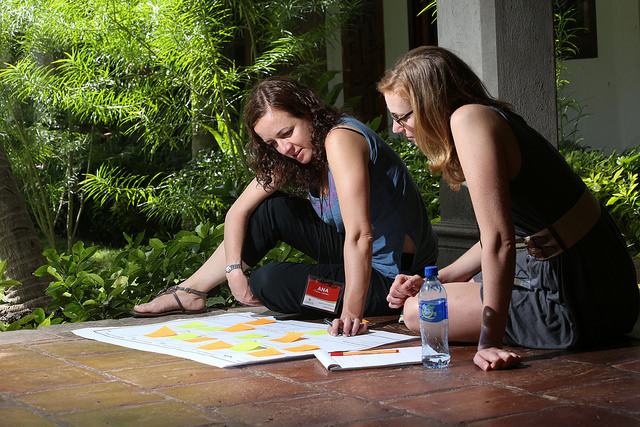
Mary Fritz, pictured right, in Nicaragua for Agora Partnerships.
When Mary Fritz thinks back to her 2012 WDI summer internship in India, she remembers the oppressive heat, the bugs, her illnesses, her inability to communicate, a lack of cultural context, being the constant object of fascination of the locals and taking a shower by pouring water over her head. In short, Fritz said, she was “missing my U.S. life.”
So it might be surprising that Fritz, who has since built a young career helping launch startups in Latin America, fondly refers to this time as an “amazing, multifaceted experience that really shaped me on a lot of levels.” She said her summer in India made her stronger and more independent, flexible, and patient.
“India is extraordinarily beautiful and diverse, and farther removed from Western culture than I had ever been before,” Fritz said. “I learned to be constantly (both) physically and emotionally, uncomfortable. I learned how to be alone. I learned to take bucket showers. I learned a little bit of Hindi.”
Along with the life lessons were plenty of business lessons as well.
“I learned the importance of including the customer in every strategic decision,” she said. “I learned humility. I learned how to connect with people without shared language. And I learned that sometimes you just can’t.”
At the University of Michigan, Fritz enrolled at the Erb Institute, a dual degree MBA/MS program with the Ross School of Business and the School of Natural Resources and Environment. She said she chose U-M for her graduate studies because of the university’s commitment to impact. She also was familiar with WDI’s support of student programs before arriving on campus.
“I’ve always been really interested in social enterprise as a way to address social, economic, and justice issues,” Fritz said. “I wanted to learn what really goes into building an impact company from the ground up, and WDI gave me that opportunity.”
Fritz worked with the social enterprise Wello, which makes water transportation products, including the WaterWheel, designed to help mostly low-income women collect and carry water long distances. Founded in rural India by Cynthia Koenig, a former WDI summer intern as well, Wello has now expanded to Pakistan, Malawi, Zambia, Bangladesh, and Haiti.
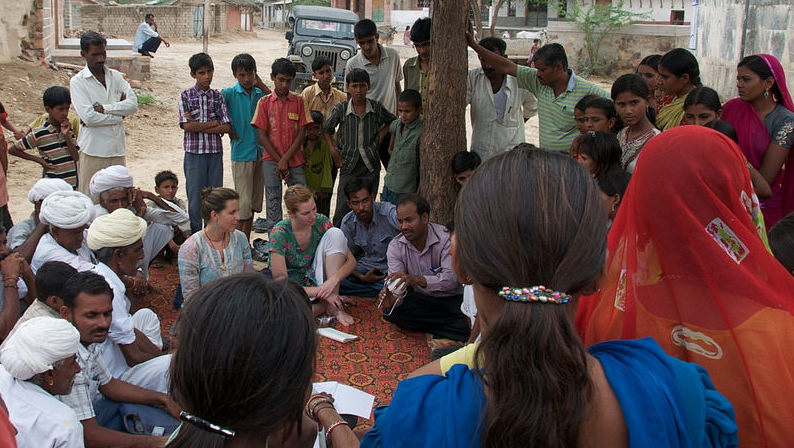
Mary Fritz, wearing a green shirt and white pants, speaks with potential Wello customers. She is seated next to Cynthia Koenig (pictured left), CEO of Wello.
Fritz was based in Mumbai, with frequent travel around the Indian states of Rajasthan and Gujarat. Because Wello was a fledgling startup with a small staff, Fritz worked on a bit of everything. But her main focus was how to get the product to the people who needed it at a price they could afford. There were a lot of manufacturing details to work out, as well as market research and customer interviews to conduct, pricing models to build, and distribution channels to develop. She also studied how to measure impact.
After graduation, Fritz took those valuable lessons and work experiences and began building and launching startup organizations focused mostly on Latin America for Agora Partnerships, a business accelerator. She recently moved to Seattle to work for Lenati, a marketing and sales strategy consulting firm. She will continue to work with startups and nonprofits as well as corporate clients.
“My experience with Wello has definitely influenced my career choices,” Fritz said. “From a functional standpoint, I became really interested in everything that’s involved in bringing a product to market. And I loved working in a startup; every day is different.”
And more than four years removed from that summer in India, Fritz said she still harkens back to those days when faced with a current-day challenge.
“Wello was my first, and definitely most intense, experience conducting customer research and trying to create a human-centered approach to a go-to-market strategy,” she said. “I use those lessons all the time.”
And despite the hardships of that sometimes uncomfortable summer in a faraway land, the internship nevertheless stoked a yearning to work internationally.
“From a personal standpoint,” Fritz said, “it definitely increased my desire to travel and experience cultures beyond my own.”
Note: This is one in an ongoing series of articles profiling past WDI interns and Multidisciplinary Action Project (MAP) team members and their career paths. Additional profiles in the series may be found here.
The Vital Voices GROW Fellowship invests in women business owners in emerging economies over a yearlong fellowship. Here, four business owners talk with Nathan Rauh-Bieri about how, in the final stage of the fellowship, they implemented and revised their action plans and evaluated progress toward their growth goals.
As part of his continuing series, Nathan Rauh-Bieri checks back in with participants in the year-long Vital Voices GROW Fellowship. In a world growing more “virtual” by the day, he learned there’s still plenty of value in entrepreneurs meeting face to face.
Note: This is one in an ongoing series of articles profiling past WDI interns and Multidisciplinary Action Project (MAP) team members and their career paths. Additional profiles in the series may be found here.
On June 17th, Zara Ahmed will take a moment during her hectic day to stop and think about a young girl living in a small, rural village in southwest Cameroon. It is something she has done every June 17th since 2008 when she was a WDI summer intern working for a public health nonprofit and helped a woman give birth to a baby girl who would then be named after her.
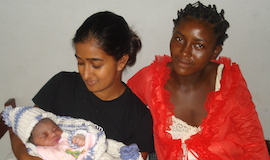
“I think back to that day and wish her a happy birthday,” said Ahmed, now the Senior Policy Advisor for Health Systems and Sustainability for the U.S. Centers for Disease Control and Prevention (CDC) in Haiti. “I wish her a future more like my own, full of opportunity, choice, support, and love.”
Despite Ahmed’s wishes, she realizes it is likely that her namesake will have a difficult life. Baby Zara’s mother was 21 when she gave birth to her third daughter, to go along with one son. Ahmed helped clean the baby after her birth with palm oil, the only clean liquid available at the minimally-equipped, one-nurse clinic.
Baby Zara’s mom was so certain she was going to have a boy that she planned to name him after Ahmed’s brother, Zamir. When Zara was born, her mother was concerned her husband – about 20 years her senior – would not be happy with another girl, and initially ignored the newborn.
Her husband eventually visited and begrudgingly gave his approval. Baby Zara’s mother began to bond with her new daughter, but talked excitedly about giving birth next to a son.
“This experience breaks my heart every time I think of it, which is quite often,” Ahmed said. “Baby Zara was born into a family that had few resources to offer her beyond their love. She was born into a life with few prospects, will likely have little education, suffer from preventable diseases, marry early, and endure risky pregnancies and childbirth of her own.
“She will not be afforded the same privileges I have – proper nutrition, years of schooling, advanced health care, reproductive choices – unless our world dramatically changes for the better.”
Trying to make the world a better, healthier place has been Ahmed’s work since graduating from the University of Michigan in 2009 with dual master’s degrees in public policy and public health. After graduation, she spent several months in Bangladesh as a consultant with the U-M President’s Advisory Committee on Labor Standards and Human Rights looking at issues of female migrant worker rights and conditions in the factories where U-M-branded goods were produced.
While in Bangladesh, she was selected for a CDC global health fellowship. She took a position on the CDC’s Health Systems Strengthening team in Rwanda in fall 2009, and on her first day was put to work on the then re-emerging H1N1 swine flu outbreak. Two days later she was part of the group briefing the country’s Minister of Health.
She was later named Health Systems Strengthening Advisor and became a CDC contractor. After three years in Rwanda, she moved to Namibia to become the CDC Health Policy and Communications Team Lead. Two years later, she moved to Haiti and assumed her current role.
All this moving around is nothing new for Ahmed, who was born in Scotland, moved to the U.S. at age 3, went to Brown University in Rhode Island for her undergraduate studies and then to U-M. “At 31, I am currently living in my 27th house so I’ve gotten quite good at packing and moving,” she said.
She originally came to Michigan to get dual degrees in public policy and social work. But she soon realized that the intersection of public policy and public health “spoke to my real interests and passions.”
During her second year at U-M, Ahmed was looking for funding for a public health internship and talked to several friends at the Ross School of Business who spoke highly of WDI and its support for students – particularly those pursuing innovative collaborations or projects.
“From the start, the team at WDI was extremely supportive, professional, and enthusiastic,” Ahmed said. “It felt like a perfect match for me.”
Her 2008 WDI-supported internship was with a group called Peacework based in rural, southwestern Cameroon along the Nigeria border. Working through a local partner, United Action for Children, Ahmed’s primary job was to assess the local public health capacity. She used information on burden of disease, demand for services, availability of resources, and other factors to develop a plan to revitalize health clinics that had lost their funding due to donor withdrawals.
She explored several models, including community-based financing and public-private partnerships. She interviewed dozens of patients and providers, and visited approximately 20 health clinics, often walking from village to village because most of the roads were washed out. She regularly spent several days at a stretch in a single clinic, sleeping on a cot or the floor.
The daughter of a physician and a medical practice administrator, Ahmed thought she was familiar with the basics of health care financing and management going into her internship.
“The daily issues that come up when running a one- or two-person health center in a remote village are hard to imagine until you’ve seen them up close,” she said. “More than interviews with staff or reviews of facility records, simply observing the rhythms of the clinics, the comings and goings of patients and friends, the role clinics play in villages of a few hundred people, and the innovative problem-solving of the staff taught me so much about leadership, management, and resilience. Those observations provided a crash course in the business of health care at the most decentralized level where people’s critical, basic needs are met.”
Those experiences in Cameroon – coupled with Ahmed’s other international experiences at U-M in Cambodia, Bangladesh and Senegal – continue to inspire and provide guidance in her current role at the CDC. Today, she is engaged in all aspects of policy, planning, strategy, and coordination of CDC’s work in Haiti. As a result, she works closely with CDC Haiti’s management, technical, and operations teams and the organization’s headquarters in Atlanta. She also interacts with numerous U.S. government agencies, such as USAID and the Departments of State, Defense, and Treasury, and global partners such as the World Bank, World Health Organization, and the Global Fund.
Ahmed said she often reflects on “the twists and turns of fate” that got her to Haiti, including her WDI internship in Cameroon. That experience, along with the others, “grounded me in the realities of global health, policy, and development, and gave me insight into various ways of thinking about issues across cultures and professions. Those skills and experiences made me a much better candidate in the job market, as I truly grasped the challenges and opportunities facing organizations like the CDC,” she said.
Her globetrotting ways are not for everyone, she said. Living and working overseas can be lonely, isolating and exhausting. But it also can be rewarding, stimulating, and enlightening. In the end, she said, you never know if living and working abroad, with its new situations and cultures, is for you until you try it.
“When I was a student at U-M applying for internships, never could I have imagined that I would be trudging through muddy, washed-out roads in the forests along the Cameroonian-Nigerian border having just helped deliver, in a one-room health clinic, a baby named after me,” she said. “That fact alone is proof that I don’t know what’s in store for my life and career, and something that I think about to this day.”
The success of results based financing (RBF) programs depends on reliable and continuous supply of affordable, high-quality medicines and other health commodities. Designers of RBF programs have limited information regarding supply chain bottlenecks and options to improve the flow of commodities. RBF program designers need an independent assessment of the structure, functioning, information flows, and incentives in the supply chain for the country implementing the program. This project developed a standardized assessment tool to capture the structure of the supply chain for RBF programs, its actors, their roles, key barriers and options for improvement. Portraying this information in a standardized format allowed Results Based Financing project designers to have a common basis of understanding and comparing performance across programs.